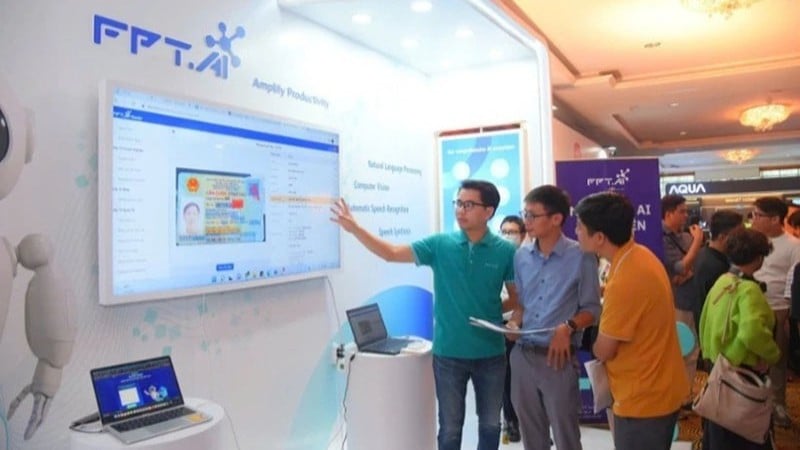
Young population, high urbanization are the launching pad for Vietnam's AI index
The global independent market research network (WIN) has just released an assessment of people's awareness, use, trust and concerns about AI, based on a survey in 40 countries on 5 continents. The survey was conducted in Vietnam by Indochina Research (one of the leading market research companies in Southeast Asia, providing independent and comprehensive research services to investors and social organizations), with a sample of N = 900 people in 4 major cities, during the period from December 2024 to January 2025.
The overall picture shows that Vietnam stands out thanks to a dynamic urban population that is open, interested and confident in new technology. In particular, Vietnam ranks 3rd globally in terms of trust in AI (65.6 points), 5th in AI acceptance (71.6 points) and is above the world average in terms of interest, comfort in use, and perception of the usefulness of AI.
These figures reflect the rapid growth of trust in digital technology in Vietnamese society – a key factor in maintaining its position in the global top 10 for AI.
While openness to AI is a bright spot, actual usage remains modest, with a score of 37.6, ranking 17th out of 40 countries.
Data shows that about 60% of people in four major cities have used AI technology, but only 3% use it daily. This reflects the reality that AI, although no longer strange, has not yet become a familiar part of daily life.
According to analysis from Indochina Research, the 18-34 age group, especially in Hanoi and Ho Chi Minh City, is the most active user of AI. In these two cities, up to 89% (Hanoi) and 87% (Ho Chi Minh City) of people aged 18-24 said they had actively used AI technology.
Meanwhile, people in Da Nang and Can Tho have significantly lower AI usage rates, reflecting the disparity in access to technology between central and secondary cities, especially in older age groups. For example, only 1 in 10 people aged 55–64 in Da Nang have had experience with AI technology.
Meanwhile, people in Da Nang and Can Tho have significantly lower AI usage rates, reflecting the disparity in technology access between central cities and secondary areas.
Mr. Xavier Depouilly, General Director of Indochina Research Vietnam, commented: "This is a global trend: The younger you are, the higher the level of AI usage. Vietnam is no exception to this trend. Although the usage frequency is still lower than some countries in the region, the young generation of Vietnam is ready to embrace new technology. That plays an important role in the country's rapid economic growth and digital transformation. Many initiatives in Vietnam are even helping users "technology leapfrog", easily skipping old technologies to quickly access modern AI applications."
Vietnamese people are interested in AI but still have concerns
The high level of interest also comes with notable concerns. According to the survey, in Vietnam, as in other Asia-Pacific countries, data privacy is the biggest concern, with 52% of respondents expressing concern about how AI collects and uses personal data.
Additionally, 48% of respondents are worried that AI could replace humans in their jobs, a concern that is common in both developing and developed countries.
Notably, while concerns about misinformation (deepfake, public opinion manipulation) are considered a top concern in many developed countries, in Vietnam, only 36% of respondents expressed concern about this issue - the lowest level of concern among Vietnamese people. This difference reflects a clear difference in perception between Vietnamese people and people in European or American countries, where concerns about misinformation are often at the forefront.
The impressive ranking on the AI index is a testament to Vietnam’s great potential in the field of artificial intelligence. However, to turn the potential into reality, we need to focus on three main directions: Expanding AI accessibility to non-urban areas and the elderly population; promoting education and communication to help people understand the benefits of AI, thereby reducing concerns and increasing usage; and building trust through transparent, safe and reliable AI systems.
Source: https://nhandan.vn/viet-nam-gay-an-tuong-tren-ban-do-tri-tue-nhan-tao-toan-cau-post895381.html




![[Photo] 60th Anniversary of the Founding of the Vietnam Association of Photographic Artists](/_next/image?url=https%3A%2F%2Fvphoto.vietnam.vn%2Fthumb%2F1200x675%2Fvietnam%2Fresource%2FIMAGE%2F2025%2F12%2F05%2F1764935864512_a1-bnd-0841-9740-jpg.webp&w=3840&q=75)

![[Photo] National Assembly Chairman Tran Thanh Man attends the VinFuture 2025 Award Ceremony](/_next/image?url=https%3A%2F%2Fvphoto.vietnam.vn%2Fthumb%2F1200x675%2Fvietnam%2Fresource%2FIMAGE%2F2025%2F12%2F05%2F1764951162416_2628509768338816493-6995-jpg.webp&w=3840&q=75)














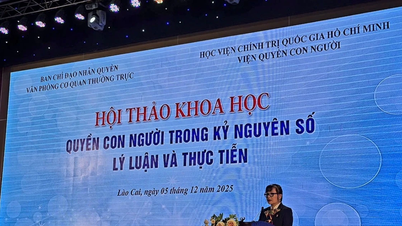


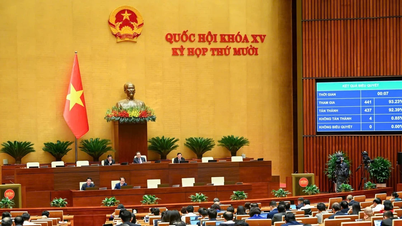
![[Video] Dong Do Hospital celebrates 15 years of operation](https://vphoto.vietnam.vn/thumb/402x226/vietnam/resource/IMAGE/2025/12/06/1764980267666_img-2287-5359-png.webp)









































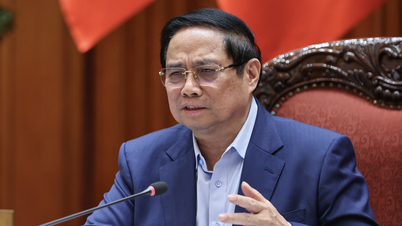





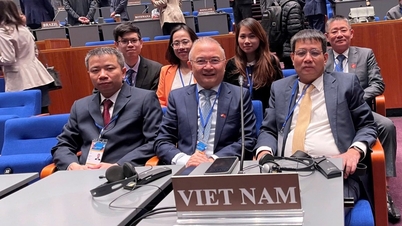
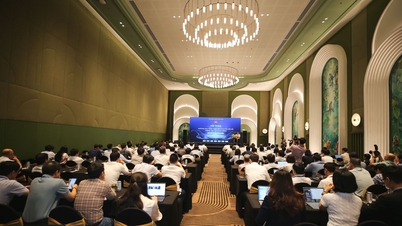






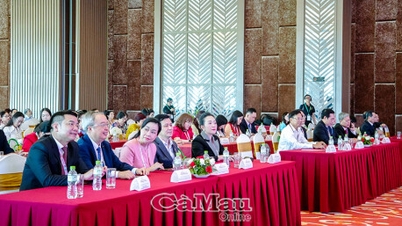




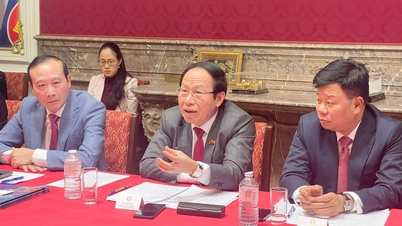


















Comment (0)